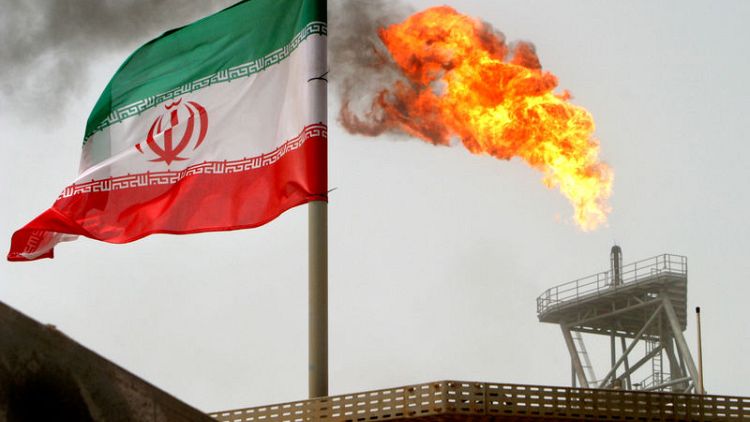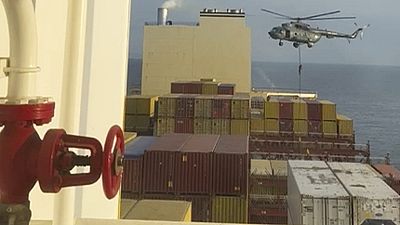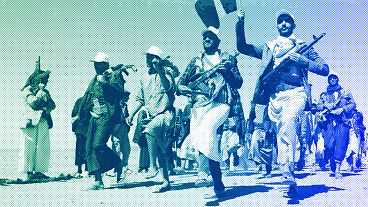By John Irish and Riham Alkousaa
PARIS/BERLIN (Reuters) - France, Germany and Britain have opened a new channel for non-dollar trade with Iran to avert U.S. sanctions, although diplomats say it is unlikely to allow for the big transactions that Tehran says it needs to keep a nuclear deal afloat.
Washington's major European allies opposed last year's decision by U.S. President Donald Trump to abandon the 2015 deal, under which international sanctions on Iran were lifted in return for Tehran accepting curbs on its nuclear programme.
Iran has threatened to pull out of the deal unless the European powers enable it to receive economic benefits. The Europeans have promised to help companies do business with Iran as long as it abides by the deal.
"It is a political act," French Foreign Minister Jean-Yves Le Drian told reporters after a meeting of EU counterparts in Bucharest. "It is a gesture to protect European companies."
Washington says that, although Iran has met the terms, the accord was too generous, failing to rein in Iran's ballistic missile programme or curb its regional meddling.
New U.S. sanctions have largely succeeded in persuading European companies to abandon business with Iran, and Washington said on Thursday that it did not expect the EU effort, known as the Special Purpose Vehicle (SPV), to change that.
"We do not expect the SPV will in any way impact our maximum economic pressure campaign," a U.S. State Department spokeswoman said.
The European trade vehicle was conceived as a way to help match Iranian oil and gas exports against purchases of EU goods. However, those ambitions have been toned down, with diplomats saying that, realistically, it will be used only for smaller trade, for example of humanitarian products or food.
"It won't change things dramatically, but it's an important political message to Iran to show that we are determined to save the JCPOA (Iran deal) and also to the United States to show we defend our interests despite their extraterritorial sanctions," one European diplomat said.
The EU has spent months preparing the system and it will take several months more to become operational.
Britain's Jeremy Hunt said the three countries were working closely with Tehran to finalise arrangements: "Registration is a big step, but there is still more work to be done," Hunt said.
RELATIONS WORSENING
The Instrument In Support Of Trade Exchanges, or INSTEX, is registered in France and will be headed by German banker Per Fischer, a former Commerzbank director. The three European powers are shareholders and hope other states will join later, although a senior German official said this was not imminent.
Iranian Deputy Foreign Minister Abbas Araqchi said the mechanism was a good first step.
The European powers must now establish a budget for INSTEX and define its rules. Iran must also set up a mirror company.
"It seems that Iran should set up the same system inside Iran to organise rial transactions for Iranian companies," Araqchi was quoted as saying by the semi-official Tasnim news agency.
The U.S. Embassy in Germany said it did not expect INSTEX to blunt its effort to pile economic pressure on Tehran.
Even as European powers and the European Union have worked to preserve the nuclear deal, relations with Tehran have been worsening. The EU this month imposed its first sanctions on Iran since the nuclear pact, in response to the ballistic missile tests and assassination plots on European soil.
In a symbolic move, the EU added two Iranian individuals and an Iranian intelligence unit to its terrorist list.
The three big European powers are also assessing whether to push for new sanctions on Iran over its missile programme, diplomats have told Reuters.
"We are clear; this commitment does not in any way preclude us from addressing Iran's hostile and destabilising activities," Hunt said.
(Additional reporting by Andrea Shalal and Paul Carrel in Berlin, Robin Emmott and Alissa de Carbonel in Brussels and Parisa Hafezi in Dubai and Arshad Mohammed in Washington; Writing by Madeline Chambers and John Irish; Editing by Peter Graff and Kevin Liffey)



